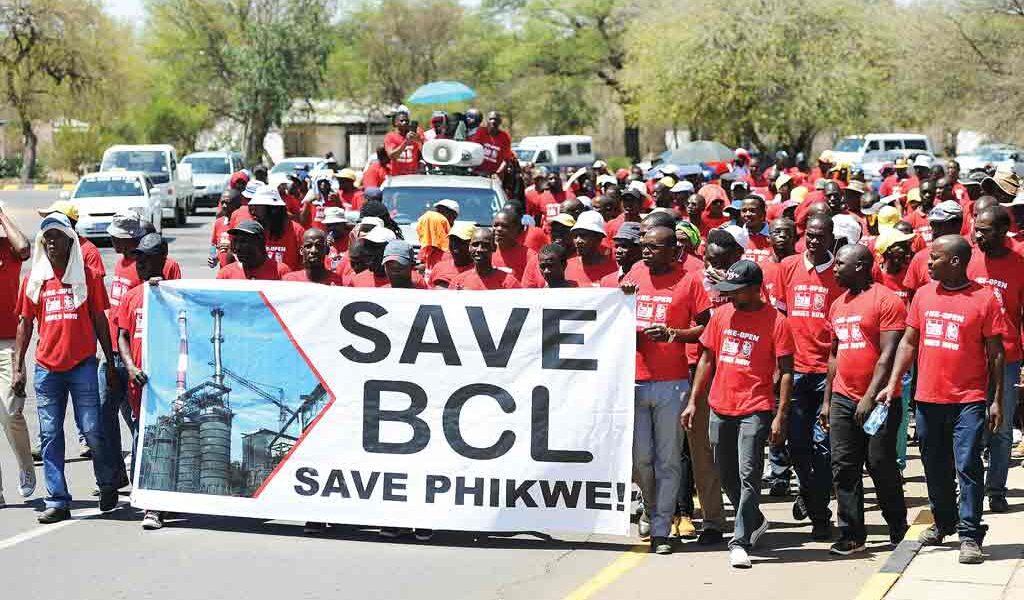“BCL mine was deliberately shut down” – Keorapetse
TSHIAMO TABANE
Government is failing to answer questions over BCL liquidations, a development which strengthens suspicions that the copper nickel company and its operations may have been shut down unscrupulously.
Government closed down BCL operations in October 2016 and placed the company under final liquidation on the 15th of June 2017. The High Court is yet to decide if BCL subsidiaries Tati Nickel Company and BCL Investments should also be placed under final liquidation.
Some legislators recently indicated that while the High Court has allowed the final liquidation of BCL, many questions remain unanswered and the recent statement by the Minister of Minerals Sadique Kebonang falls short of allaying concerns. Legislators say government’s decision to “pay itself” P1 billion from BCL cash reserves in 2014, remains questionable arguing that the funds could have provided the cash buffer BCL needed in a period of low nickel prices.
Selibe-Phikwe West legislator Dithapelo Keorapetse indicated that government was the custodian of BCL’s financial security and the mine was never formally a parastatal or a public enterprise which makes huge profits to pay dividends and boost government revenue. The MP stated that even when there were significant private sector shareholders in the early years, government structured BCL in such a way that it would be a recipient of government funds or funds raised by the government from multilateral and bilateral financial partners. “The company was never set up as a normal commercial enterprise, with the flexibility necessary to be able to raise other money and determine its own financial fate. It was an immensely complicated financial structuring, enshrining BCL as a unique entity, and a bulwark of the Botswana’s economy. In exchange for the implicit and explicit backing of government – the government never showed any intention other than to roll over BCL’s debts to the state and the company became dedicated to providing a functioning operation that provided 5000 jobs,” he said.
According to the MP, during the years when metal prices were high, BCL managed to build up some cash and during the days when there was more private sector influence at the company, these proceeds from the good times were invested in the company; “This practice built up over almost half a century, changed radically in 2014, when government started to treat BCL as a normal commercial entity which should contribute to government revenues.” The MP added that by 2014, after the preceding price boom years, BCL had built up its cash reserves and it should have been allowed to use this money to invest in the business, for the inevitable downturn in prices like it had done before. “Instead, after decades of treating BCL as a ward of the state and structuring it so that it could not raise money on its own – the government switched to treating BCL as a normal company. The decision coincided with a shutdown of the smelter, which had to be refurbished at a cost of more than 700 million pula. The combination of the shutdown and the depleted reserves, which government had drained, was fatal,” said Keorapetse.
The MP says government stripped the cash that was much needed in 2015 from the BCL rendering the company an insolvent entity and added that it was shut down deliberately. “I believe the BCL was killed deliberately and the smoking gun is the decision by the government to take P1 billion from BCL in 2014 is the smoking gun!” he said.

